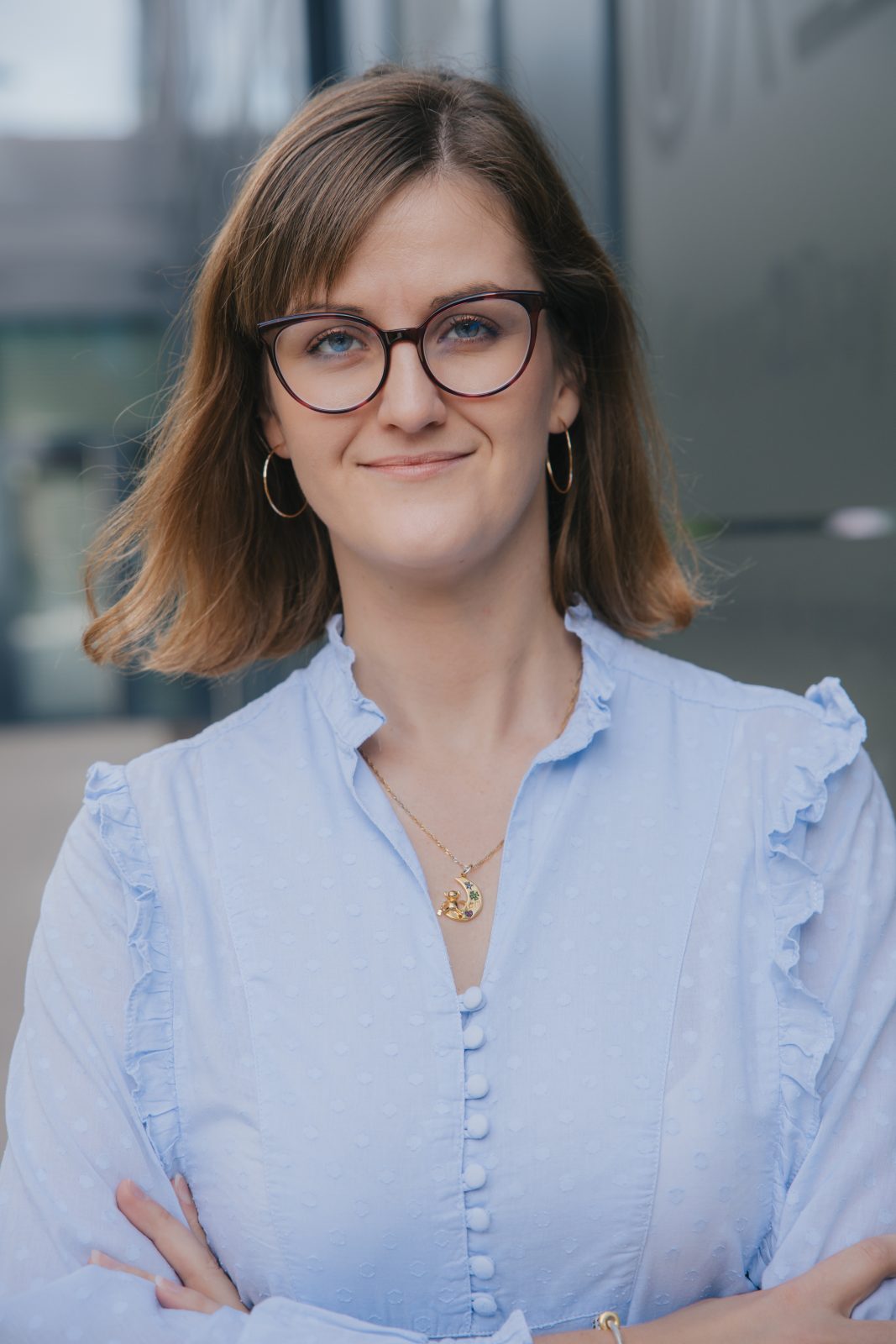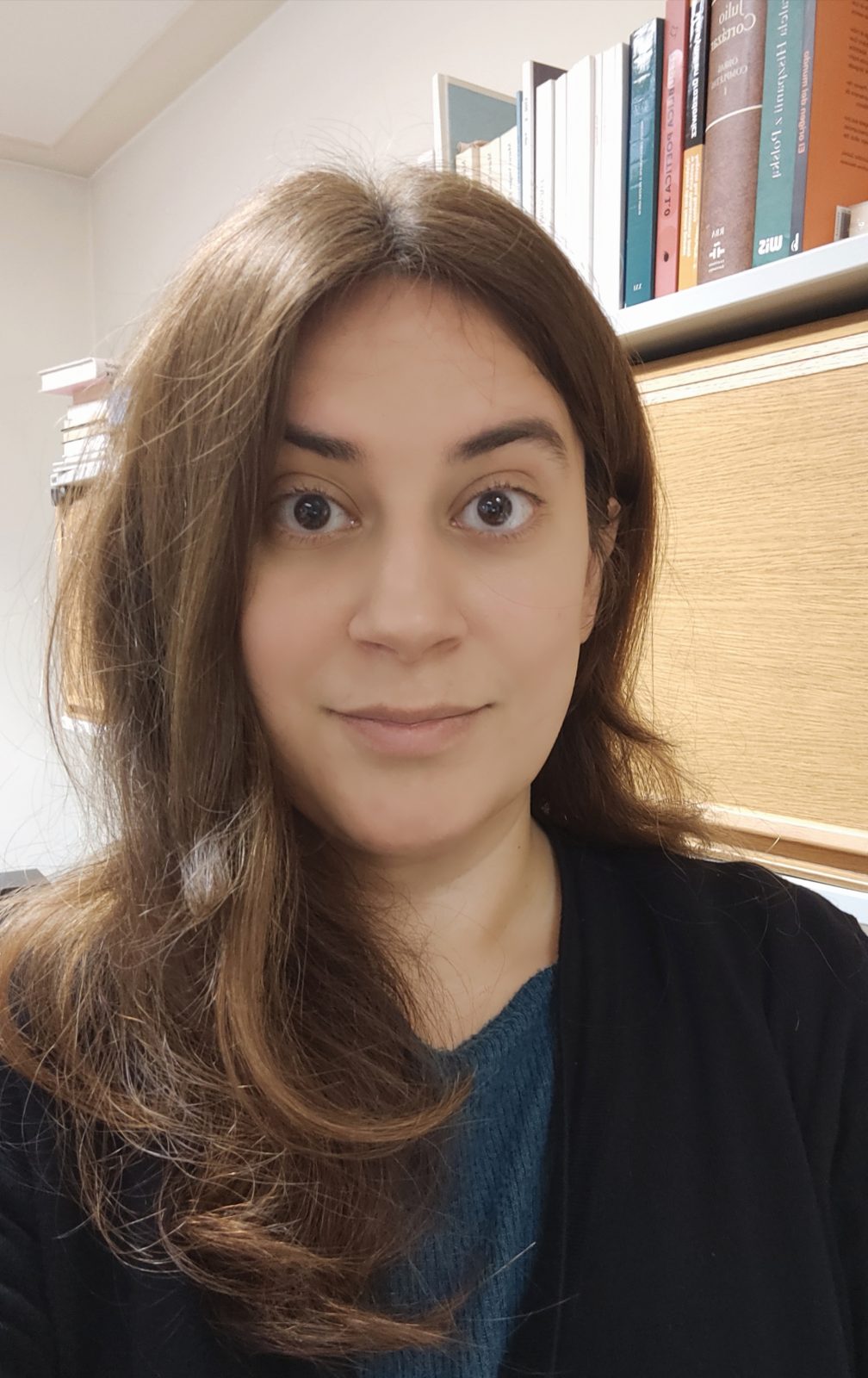
Grants for our scientists
Three scientists from our university have received grants for research in the sixth and final round of the MINIATURA 8 competition, funded by the NCN (National Science Centre). We congratulate dr Paulina Czechowicz, dr Agata Draus-Kłobucka and dr Szymon Beniuk!
Miniatura is a grant given for conducting individual scientific activities, which may help prepare the foundations for a more extensive future project.

Dr Paulina Czechowicz from the Department of Biophysics at the Faculty of Biotechnology will conduct preliminary research on the “Rola multienzymatycznego kompleksu dehydrogenazy rozgałęzionych α-ketokwasów (BCKDH complex) w wywołanym stresem ER reprogramowaniu metabolicznym komórek” (eng. Role of the multi-enzymatic complex of dehydrogenase branched α-ketoacid (BCKDH complex) in stress-induced ER metabolic reprogramming of cells). What is the focus of the research?
A clear correlation has been identified between abnormalities in the metabolism of branched amino acids (BCAAs: valine, leucine, isoleucine) and the occurrence of various civilization diseases, like obesity and type 2 diabetes. Disruptions in the BCAA metabolic pathway located in the mitochondria contribute to increased levels of circulating in blood BCAAs and the associated toxic effects. Simultaneously, they lead to the accumulation of intermediate metabolites within the mitochondria, directly disrupting their function and triggering a stress response – likely involving ER stress, which leads to the activation of the unfolded protein response (UPR). However, there are no scientific reports on the impact of UPR on gene expression changes relevant to the BCAA metabolic pathway described above.
As dr Czechowicz explains,“Since the α-subunit of BCKDH is crucial for the metabolic activity of the most important enzyme in the entire described pathway, I hypothesize that UPR-related changes in its expression affect the mitochondrial metabolism of the exposed on ER-stress cells. It should be emphasized that stress-related changes in mitochondrial metabolism may serve both to help the cell survive adverse conditions and support the restoration of homeostasis, as well as activate cell death processes in the case of prolonged stress signals.”
Complex and dynamic analysis of BCKDH’s impact on the UPR and related with it metabolic profile, proposed in this project, has not been undertaken before, especially in the context of type 2 diabetes. As she adds, “Understanding how UPR affects metabolism could be the starting point for new therapeutic strategies or even for the development of innovative, effective approaches to preventing the development of diseases such as type 2 diabetes or cancers.”

Dr Agata Draus-Kłobucka from the Department of Iberian Studies at the Institute of Romance Studies, Faculty of Languages, Cultures and Literatures, received a grant for the project “Fragmenty miasta – fragmenty tekstu: dezintegracja przestrzeni miejskiej w najnowszej literaturze hiszpańskiej i hispanoamerykańskiej” (eng. Fragments of the City – Fragments of Text: The Disintegration of Urban Space in Contemporary Spanish and Latin American Literature).
The project focuses on identifying ways in which the progressive disintegration of large Spanish and Latin American metropolises and resulting from its socio-economic issues are reflected in contemporary Spanish-language literature, particularly within the current “fragmentary literature”. These issues include the rise of new urban ghettos, the creation of new “urban islands”, migration, urban spatial policies, environmental degradation, and limited access to green areas. During the research trip to the University of Valladolid dr Draus-Kłobucka will examine the extensive local library collections and consult her hypothesis with the research group GIRLEC, which runs the project “Fractales”.

Dr Szymon Beniuk from the Department of Material History at the Historical Institute, Faculty of Historical and Pedagogical Sciences, will work on the project “Stadion, ale jaki? Wokół koncepcji modelowego obiektu sportowego II Rzeczypospolitej” (Stadium, but of What Kind? The Concept of the Model Sports Facility in the Second Polish Republic).
As he states, “Thanks to the received grant, I will conduct research on technical documentation regarding the stadiums, which were built in the Second Polish Republic. I will examine materials located in seven archives in Poland: the Central Military Archives in Warsaw and in the State Archives in Kielce, Łódź, Leszno, Częstochowa, Katowice, and Poznań. Gathered and analysed technical documentation will allow us to understand the characteristics of interwar Polish stadiums and to determine whether there was a model design of such facilities. It is important to remember that this was a period of increasing popularity of sports in Polish society and of building the foundation for competitive sports. However, there were some challenges along the way – after the period of partitions, Poland was entering independence with significant deficiencies in sports infrastructure. As a result, sports facilities, including stadiums, were constructed in cities and became local centres of sport activities. The projects had to include the needs of the players, participants in mass sports, and fans.”
MINIATURA is a competition for scientists, both men and women, who have obtained a doctoral degree within the last 12 years and have no previous experience in independently managing research projects funded by the NCN or other sources. In the eighth edition of MINIATURA researchers could receive funding ranging from PLN 5,000 to PLN 50,000 for research activities lasing up to 12 months in the form of preliminary studies, pilot research, archival work, scientific internships, research trips, or consultation trips. For the first time in the competition’s history it was possible to plan more than one research form, if it was justified. To apply for funding in the competition it was required to have at least one published paper or one artistic / artistic-scientific achievement in portfolio.
Activities funded in the MINIATURA competition allow the researchers, who are at the beginning of their scientific career, to gain first experiences in the grant system. MINIATURA serves as a starting point to create the foundations of a full-scale research project, for which researchers can later apply for funding in NCN competitions or other national or international contests.
More information on: https://www.ncn.gov.pl/aktualnosci/2024-11-25-rozstrzygniecie-osmego-konkursu-na-male-granty
Text: Katarzyna Górowicz-Maćkiewicz
Date of publication: 02.12.2024
Added by: M.J
Translated by Julia Wąsowicz (student of English Studies at the University of Wrocław) as part of the translation practice.



